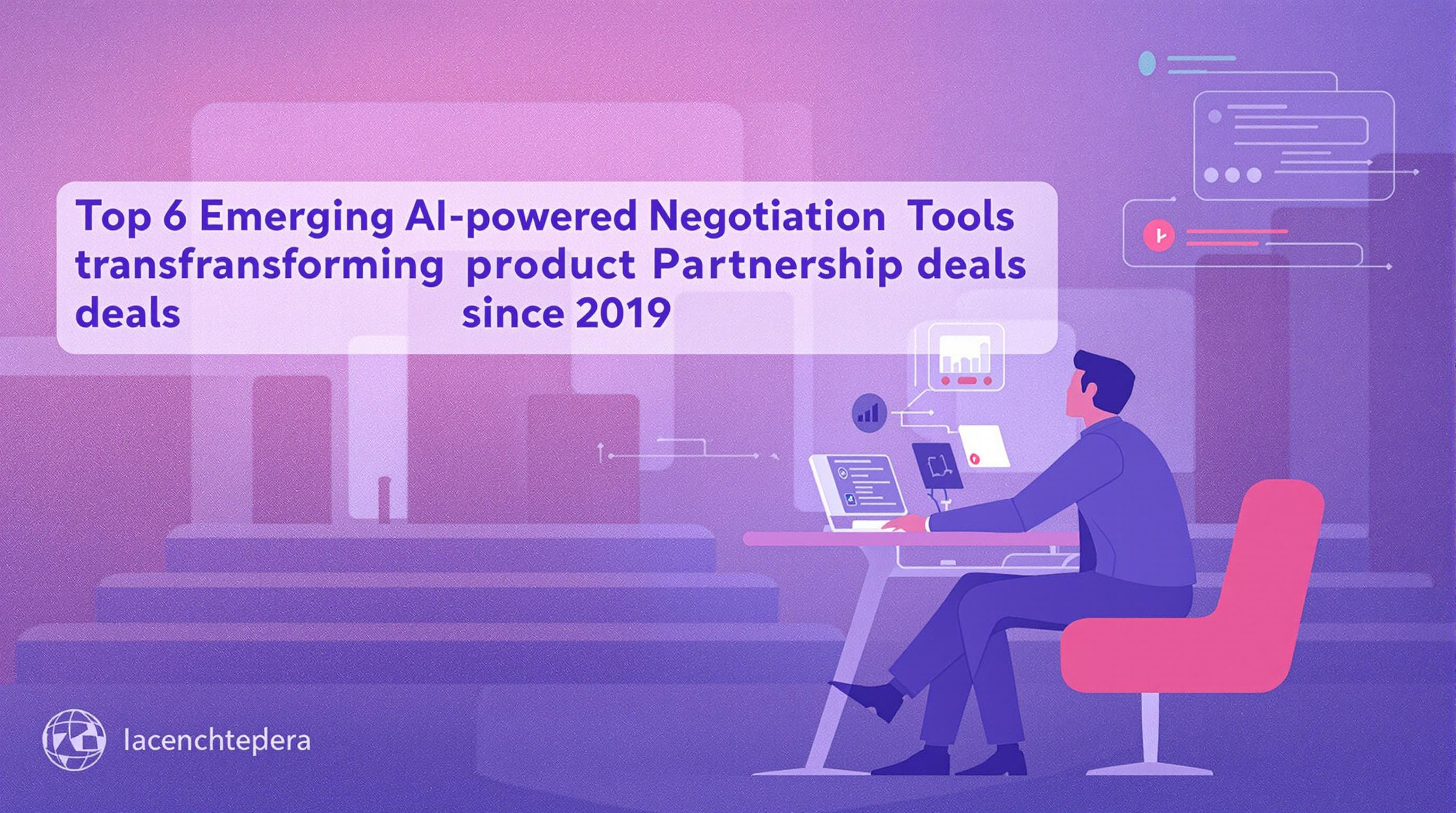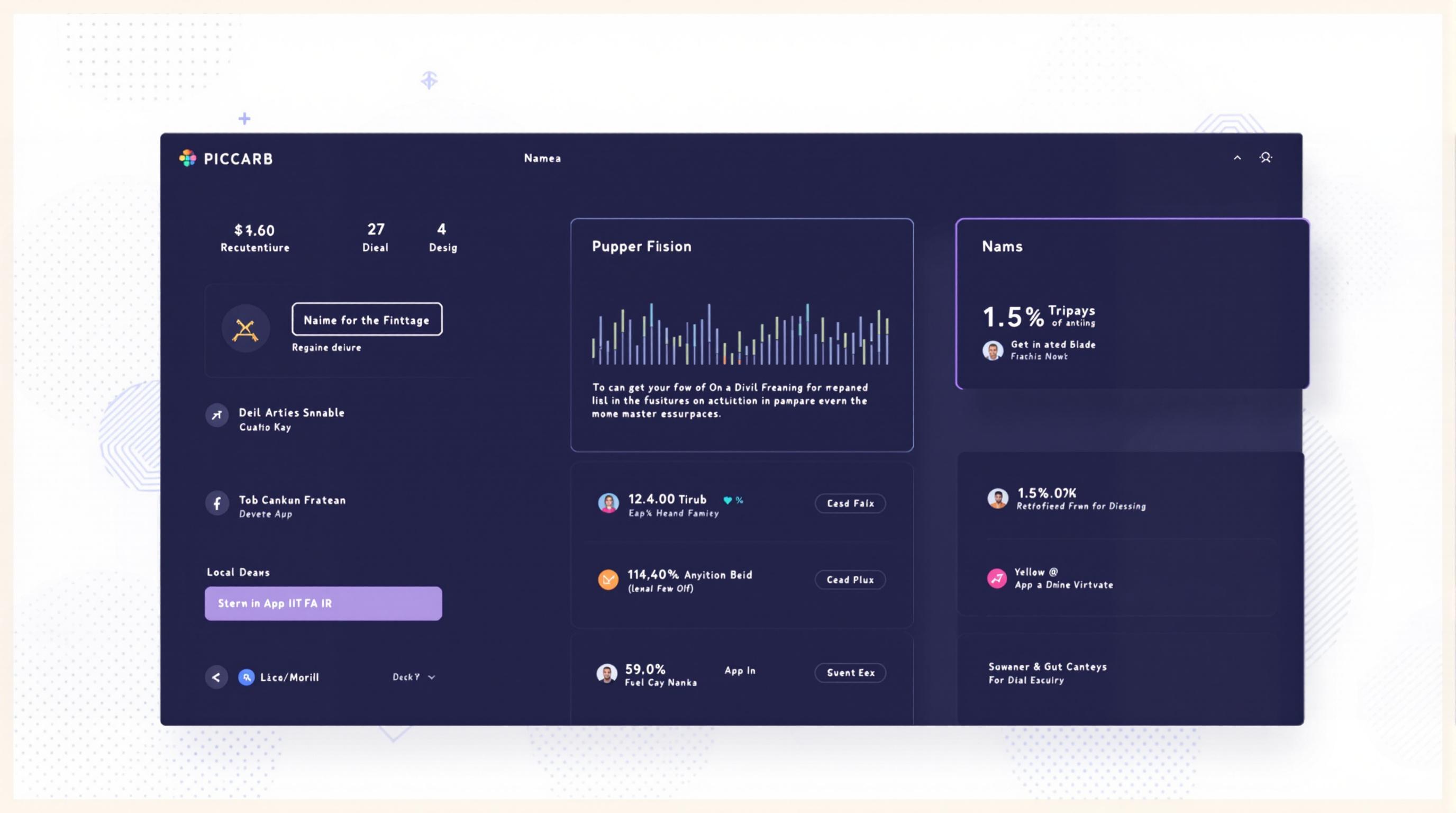Related Articles
- Unraveling the Silent Influence of Biometric Data on European Privacy Safeguards and Compliance Challenges
- Top 6 Game-Changing Franchise Analytics Platforms Launched Since 2019 for Strategic Brand Expansion
- Hidden Pitfalls in Using NDA Templates for Cross-Cultural Tech Collaborations: Lessons from Unexpected Legal Quagmires
- Top 6 Emerging AI-Powered Negotiation Tools Transforming Product Partnership Deals Since 2019
- Top 6 Under-the-Radar Business Licensing Tools Released Since 2019 That Outsmart Traditional Systems
- How Emerging Environmental Regulations Are Secretly Reshaping Small Business Structures in Unexpected Ways
Top 6 Emerging AI-Powered Negotiation Tools Transforming Product Partnership Deals Since 2019
Top 6 Emerging AI-Powered Negotiation Tools Transforming Product Partnership Deals Since 2019
AI-powered negotiation tools have revolutionized how product partnership deals are struck since 2019, blending data science and human strategy for unprecedented results. This article unpacks six standout platforms leading this transformation through diverse approaches and remarkable case studies.
Conversational Insights: How AI Is Changing the Negotiation Game
Hey there! Imagine you're sealing a multi-million-dollar deal, but instead of sweating over terms, you have an AI assistant not only suggesting the best offers but also predicting your partner’s responses. Cool, right? Since 2019, such AI tools have been shaking up the world of product partnerships by automating complex negotiations and improving win-win outcomes.
1. Pactum: The Autonomous Negotiator
Founded in 2018, Pactum is an AI-based negotiation platform designed to negotiate commercial agreements for vendors and buyers alike. Employing reinforcement learning algorithms, Pactum autonomously negotiates at scale, dynamically adjusting offers based on historical and live data to maximize value for all parties.
Consider a grocery chain that used Pactum to renegotiate contracts with hundreds of suppliers simultaneously, resulting in a 7.2% average cost reduction—an impressive leap in procurement efficiency (Pactum Case Study, 2021).
What Makes Pactum Stand Out?
Its ability to handle multi-issue negotiations without human intervention and the flexibility to integrate with existing CRMs helps companies streamline their partnership deal processes and decrease negotiation cycles by up to 50%.
Storytelling Mode: The Unexpected Negotiation Champion
Let me tell you about Sarah, a mid-level product manager at a tech startup. In 2020, she was tasked with forging strategic partnerships but lacked negotiation experience. Enter an AI negotiation platform called Arbi. Within weeks, Sarah closed three deals that typically would have taken months. The AI tool suggested optimal concession strategies by analyzing years of market data, empowering Sarah to negotiate confidently and efficiently.
2. Arbi: The Young Contender
Arbi leverages natural language processing to parse contracts and propose counteroffers tailored to specific negotiation contexts. It’s particularly useful for startups and smaller businesses venturing into complex partnerships without legal teams.
According to Arbi’s 2022 user survey, 82% of users reported increased deal closure rates and felt more prepared entering negotiations.
Formal Perspective: AI and the Corporate Sphere
In large enterprises, data-driven decision making is paramount. AI negotiation tools provide executives with predictive analytics and scenario simulations, reducing human error and enhancing strategic outcomes.
3. Kleros: The Blockchain-Powered Arbitrator
Kleros is unique as it blends AI with decentralized judicial systems on the blockchain to resolve contract disputes and assist in negotiations. Since 2019, it has been a pioneer in integrating transparency and immutability into the negotiation process, attracting partnerships in fintech and supply chain sectors.
For instance, a European logistics firm reported a 40% reduction in dispute resolution time after adopting Kleros-enabled negotiation workflows (Kleros Annual Report, 2023).
Technical Edge
Kleros’ combination of AI and smart contracts mitigates risks inherent to traditional negotiated agreements, offering trustless yet flexible solutions for product partnerships.
Humorous Take: When Robots Do the Deal-Making
Picture this: Two execs, coffee in hand, staring at their screens while virtual AI avatars debate over pricing like Shakespearean actors — but with way less drama and more logic. Okay, the future is here, and AI negotiation tools aren’t just nerdy gimmicks; they’re reshaping boardroom tactics with impeccable charm and ruthless efficiency.
4. DealRoom: Collaboration Meets Automation
DealRoom integrates AI into due diligence and negotiation workflows, providing actionable insights and risk assessments during product partnership talks. By combining human judgment and AI automation, it enables teams to close deals 30% faster, as per their 2022 client reports.
Example:
A mid-sized SaaS vendor used DealRoom to negotiate integration partnerships, successfully accelerating their time-to-market by weeks while maintaining profitability margins.
Persuasive Analysis: Why AI Negotiation Tools Are Essential
In an era of fast-evolving markets and complex stakeholder networks, conventional negotiation tactics fall short. AI-powered tools equip businesses with data-backed strategies, reduce emotional biases, and uncover hidden opportunities that human negotiators might overlook.
5. Juro: Contract Automation with Negotiation Intelligence
Juro combines contract lifecycle management with AI-driven negotiation recommendations. Since 2019, it has enabled companies to automate both clause suggestions and collaborative negotiations in one unified platform, reducing contract turnaround times by over 60% (Juro Performance Metrics, 2022).
The platform’s intuitive interface appeals to legal teams and business partners alike, facilitating smoother product collaboration deals.
Casual Wrap-up: AI and Your Next Big Deal
If you're young or old, a startup hustle or a corporate giant, AI negotiation tools offer a powerful edge. From powering autonomous negotiations to providing judicial arbitration, these platforms have already disrupted traditional dealmaking since 2019 — and they're just getting started.
6. Pactera EDGE: The Hybrid Genius
Mixing AI analysis with human expertise, Pactera EDGE provides deep negotiation insights for global businesses. Their AI evaluates partner compatibility, financial risks, and strategic alignment to advise negotiators throughout the deal process.
According to Pactera EDGE’s 2023 report, clients have seen up to a 25% increase in partnership success rates when leveraging AI-human hybrid models.
Statistics Snapshot: The Numbers That Speak
- Artificial intelligence in negotiation automation markets projected to grow at a CAGR of 24.5% from 2021 to 2026 (Source: MarketsandMarkets).
- Companies using AI negotiation tools report up to 50% shorter deal cycles (PwC Negotiation Insights, 2022).
- 70% of businesses adopting AI negotiation platforms state increased profitability from partnership deals (Deloitte 2023 Report).
As AI continues maturing, expect even more sophisticated tools to emerge, further leveling the playing field for negotiators worldwide—whether you’re sealing product partnerships or complex cross-industry collaborations.




